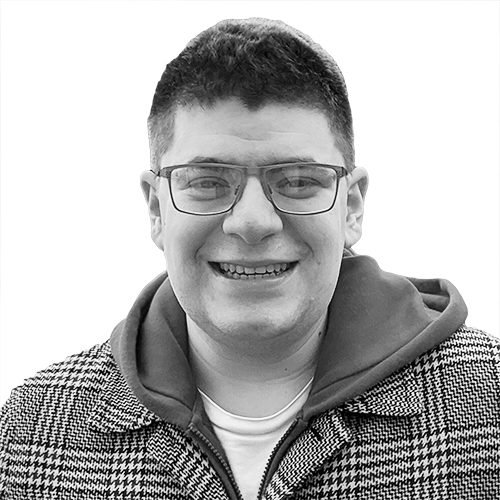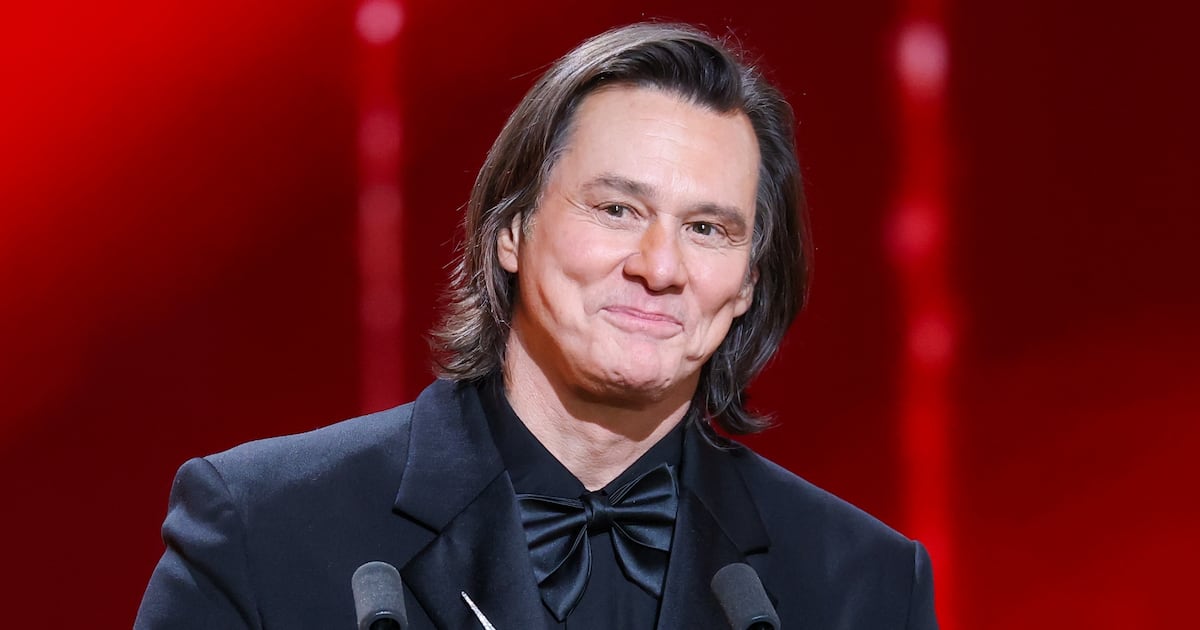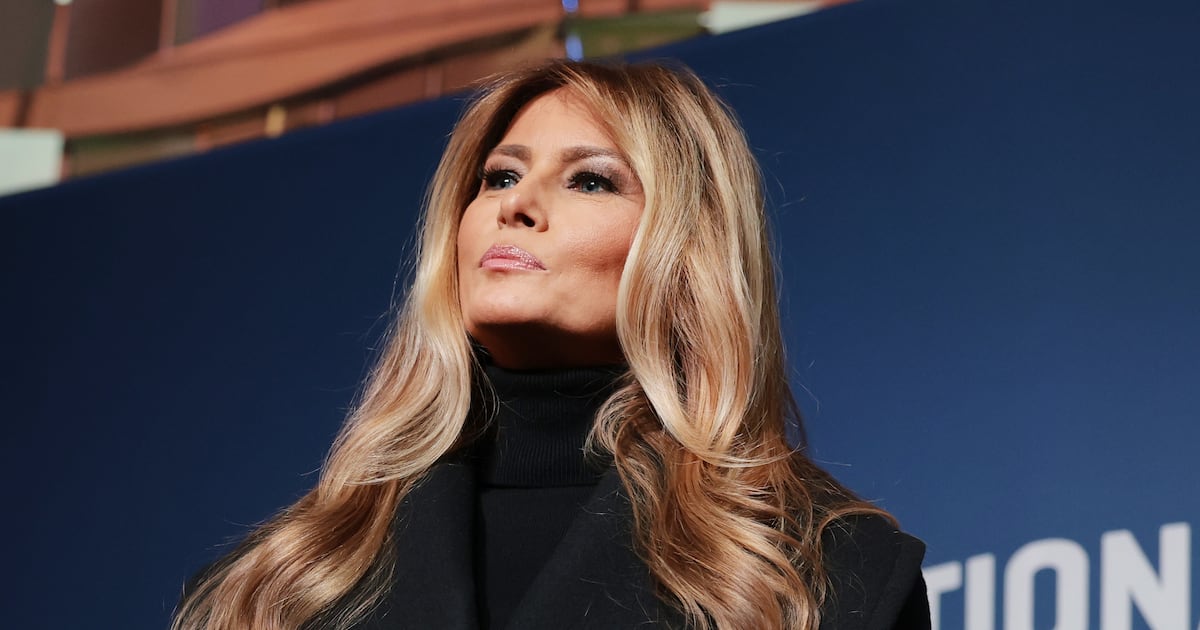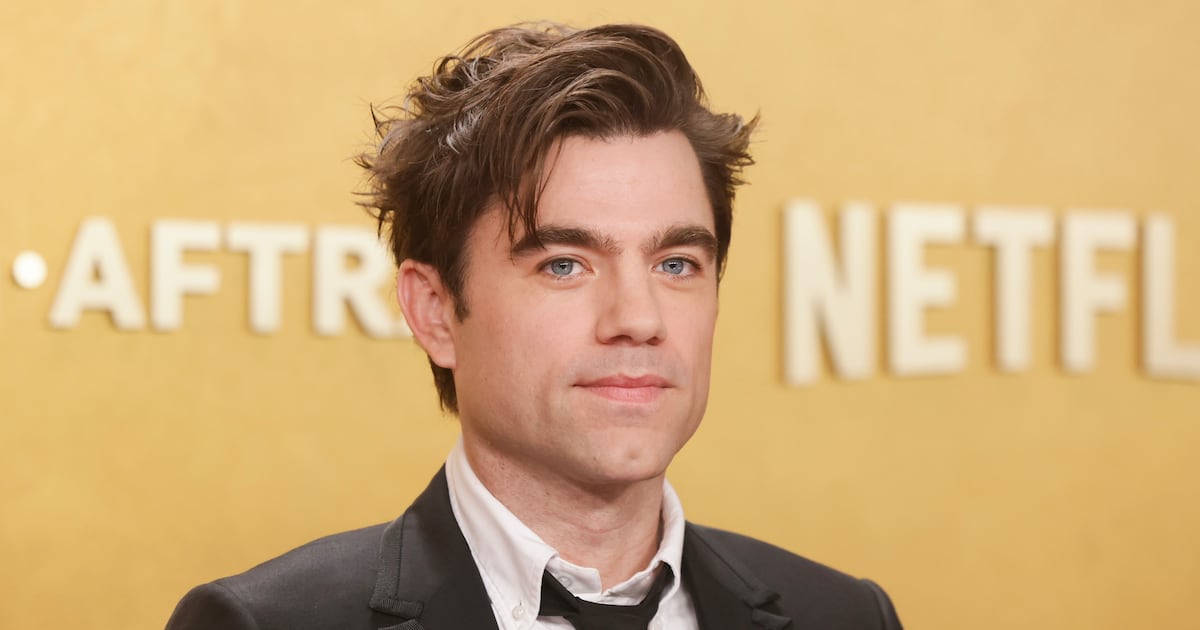Anthony Doerr’s All The Light We Cannot See has maintained critical renown since its 2014 release, selling more than 15 million copies and winning a Pulitzer Prize along the way. The story, which follows the lives of a girl who is blind and a German soldier in occupied France during World War II, has long felt primed for adaptation—and that’s exactly what’s happened, nearly a decade later, with a four-episode limited series on Netflix helmed by director Shawn Levy.
Unfortunately, a great book does not make for a great series. All The Light We Cannot See is let down by several strange decisions, from rough dialogue and poor pacing—neither of which were problems with the source material—that fail to do justice to the book so many have adored. But what’s especially bizarre is that one of the show’s most talented actors, Mark Ruffalo, delivers a shockingly terrible performance that derails the entire thing. And it all comes down to his accent.
When we first hear Ruffalo’s character Daniel, about 15 minutes into Episode 1, he’s showing his vision-impaired daughter Marie-Laure (Aria Mia Loberti) a tactile model of Paris. We know it is Paris, because the text on the screen tells us so—because no sounds coming out of Ruffalo’s mouth suggest we’re anywhere near France, let alone Paris. Daniel uses the model to help his daughter, the series’ main lead, understand the layout of the city. But Marie-Laure keeps going on tangents. “Let's not get distracted by all the fancy places,” Daniel tells her.
It’s this one, coughed-out line delivery that plants an enormous red flag in the heart of All The Light We Cannot See. It sounds deliberately put-on by someone who studied the completely wrong set of linguistics, Frankensteining together British and German accents, while occasionally nose-diving into the tenor of a fanciful eccentric who huffs too many bath salts. He never, however, sounds French. It's like Ruffalo spent dozens of hours watching parodies of German accents and thought that would be perfect for his Frenchman character.
It’s an … interesting choice, considering point A: Parodic accents are unbecoming in what’s supposed to be a very serious drama; and point B: Ruffalo’s character is not, in any capacity, German. What’s even wilder is that his German accent vanishes without a trace in the next line, drifting back to his natural speech patterns, only to come back a few moments later. It’s truly like a box of chocolates: You never know what you’re going to get, but in this case, you don’t want any of it.
It goes without saying that a voice is a pretty essential part of most performances. Ruffalo’s performance here is a reminder of how difficult it is to establish chemistry when that voice is so out of whack with the rest of the story. In this same pivotal scene, Daniel recounts how he proposed to Marie-Laure’s mother, before taking her out into the city streets and the museum where he works. But because Daniel and Marie-Laure sound completely different, their relationship isn’t believable. If Daniel didn’t constantly refer to himself as her papa—that’s what French people call their fathers, you see—and if Marie-Laure didn’t constantly call him papa, Daniel might as well be a random neighbor than Marie-Laure’s father.
Each time Daniel appears on screen should be an opportunity to care about his character more; as the father of Marie-Laurie, his relationship with his daughter is essential to the fabric of the story, and understanding how Marie-Laure became such a strong-headed, independent person. But Ruffalo’s utterly perplexing choices have the entirely wrong effect. Instead, he makes it impossible to have any Earthly idea of what’s going on around him, let alone why we should feel any type of way about it. All we can focus on is what he’s going to say next—well, not what he’s going to say, but how he’s going to say it.

The most egregious example of Ruffalo’s distracting vocal puppetry happens in what should be an emotionally harrowing scene—Daniel and Marie-Laure are trying to escape a Paris that’s been taken over by Nazi Germany. In the train station, hundreds of Parisians are desperate to get a train out, but none remain. A giant Nazi flag unfurls from the top of the station, and it's a legitimately chilling moment—until, of course, Ruffalo starts speaking. He barely says anything, but his utterances of “Let’s go,” “Come” and “Hold on” all sound completely different from each other, let alone the people around him. It’s jarring, robbing the scene of its impact.
Listening to Ruffalo oscillate between British, American, French, and German accents, often within the same sentence, is kind of thrilling—like watching a car wreck that scars you, but simply cannot look away from. It all sounds so tremendously silly as if Ruffalo was in a Looney Tunes short or an SNL sketch. But this is supposed to be a prestige Holocaust drama, and Ruffalo speaks like he’s trying to imitate Bugs Bunny. It’s as if he did some vocal training, found a few accents he found appropriate, and decided to choose all of them for a single character. It’s beyond preposterous—but perhaps the actor read the script, saw what a mishandling of the source material this is, and said, “To hell with it.”
Ruffalo’s linguistic gymnastics also feel like an issue of quality control: Have we really gotten to the point where nobody in the process of making this major television show based on a massively successful book thought, “Oh, maybe Mark Ruffalo shouldn’t sound like he’s learning to speak for the very first time?” The problem isn’t even exclusively with Ruffalo; though his accent is absolutely the strangest, all these very French characters speak with distinctly British accents meant to be read as French.
This is part of a long, frustrating trend with stories set in non-English-speaking countries: Everyone in any distinctly European country sounds nothing like the country they’re supposed to be from. It’s especially odd when you consider that the German characters in All The Light We Cannot See speak in German-accented English. That makes the French characters speaking in British-accented English less a frustrating oversight and more an example of total disregard, if not ineptitude.
It’s always baffling when an actor this good can also be so dreadful, especially since he gives one of his career-best performances in recent festival favorite Poor Things. It reminds me of the time Sandra Bullock won the Oscar and the Razzie in the same week, for The Blind Side and All About Steve, respectively. That same fate could have rightfully befallen Ruffalo this year, and it would be deserved—but thankfully for the actor, the Razzies don’t cover television.






